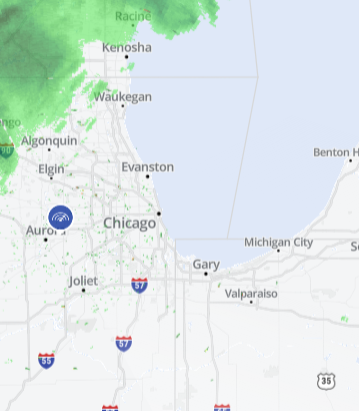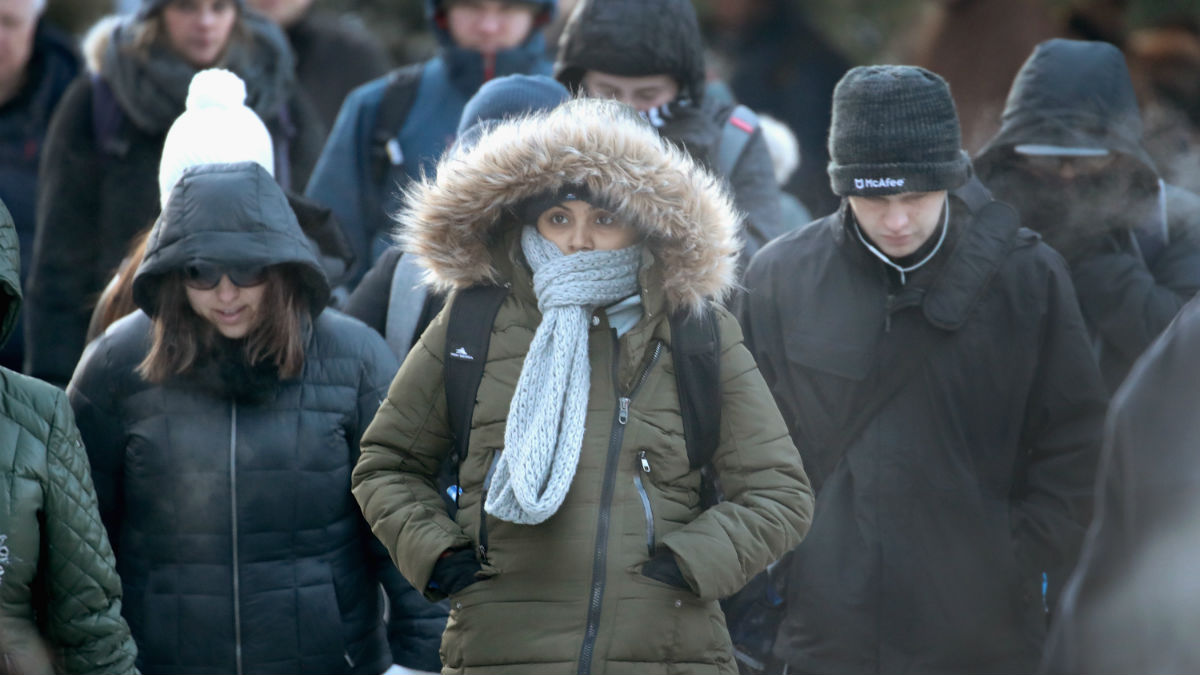Chicago officials announced on Monday six new guidelines or rules to preserve the progress made in fighting the coronavirus pandemic as the city eases some of its restrictions.
Here's a look at the new requirements, taking effect at 5 a.m. on Thursday:
- When dining out at a food service establishment or bar, customers must always wear face coverings while seated, except when actively eating or drinking. This protects employees that may interact closely with patrons.
- Patrons at indoor bars, taverns and breweries must order from their seats – they cannot walk up to the bar to order.
- Bars, taverns and breweries that are reopening indoors must partner with a food establishment so that food is available to patrons at all times (e.g., making menus available and allowing delivery, allowing patrons to order from third-party delivery services).
- When taking reservations and seating walk-in customers, restaurants and bars should retain an email and/or phone number for possible contact tracing.
- Personal services that require the removal of face coverings are recommended to be kept under 15 minutes, and the employee conducting the service must always wear a face covering.
- All places of business should provide hand sanitizer for patrons and employees to use upon entry.
Those new rules take effect at the same time as some of the restrictions already in place will be relaxed, allowing indoor bar service to resume and increasing capacity limits at businesses.
Those changes, according to Mayor Lori Lightfoot's office, include:
- Increased Indoor Capacity: Restaurants, health and fitness centers, personal services, non-essential retail and all other establishments that have been limited to 25% indoor capacity will now be able to increase their maximum indoor capacity to 40%. The limit of 50 total customers within one room or space at restaurants, venues and other establishments will remain in place, as will the limit of no more than six people per table.
- Reopening of Bars: Breweries, taverns, bars and other establishments that serve alcohol without a food license may reopen with indoor seating, at 25% capacity or 50 people, whichever is fewer. Service remains limited to no more than two hours per party, and customers must be seated when eating, drinking or ordering – patrons cannot walk up to the bar to order.
- Extended Hours for Bars and Restaurants: Bars, restaurants and other establishments that serve alcohol will now be able to sell alcohol for on-site or offsite consumption until 1:00 am and may remain open until 1:30 am. Liquor stores, grocery stores and other establishments that sell alcohol to-go through a Packaged Goods license must continue to cease alcohol sales at 9:00 p.m.
- Increased Group Size: Maximum group size for health and fitness classes and afterschool programming will increase from 10 to 15 people.
- Expanded Personal Services: Facials, shaves and other personal services that require the removal of face coverings will be allowed.
“Over the past six months, we have asked so much of our business community. But each time, our businesses have stepped up to the plate," Lightfoot said in a statement.
Local
"Thanks to this cooperation, we have met this challenging moment with grace, commitment and resilience, and the sacrifices made by our businesses, workers and residents have saved countless lives," she continued. "This next step in our reopening is good news for business owners as well as the communities they serve and the thousands of residents that work for them.”
The city has been in phase four of its reopening plan since June 26, when some of the earlier restrictions put in place to slow the spread of the deadly coronavirus were gradually lifted.
Then on July 24, city officials changed course to shut down indoor bar service, reduce capacity limits at fitness classes and heighten other restrictions as the city continued to see an increase in its average number of daily new cases.
Lightfoot and Chicago Department of Public Health Commissioner Dr. Allison Arwady said Monday that the city was seeing an average of roughly 300 new cases of coronavirus per day, as compared to more than 350 in late August.
The positivity rate in testing has also fallen to 4.5%, officials said, adding that hospitalizations from COVID-19 as of Monday were lower than they've been since March. The city sees roughly two to three deaths per day, according to Lightfoot's office, as compared to about 50 a day at the peak of the pandemic.
“Overall, we are heading in the right direction, and this affords us an opportunity to further re-open the city and to do so gradually and safely,” Arwady said in a statement. “But I can’t emphasize this enough: Chicagoans need to continue to follow the public health guidance – wearing masks, social distancing, frequent hand washing and staying home when sick – or we risk falling back and experiencing another rise in cases.”
Prior to closing indoor bar service and implementing further restrictions in late July, Arwady had long warned that roll backs were possible if the city reached an average daily case rate above 200, which it did days before the new guidance was issued. She had previously said that daily number of new cases was the "best reflection of the burden of our disease."
"This, if I had one number, is the number that I follow," she said at the time, noting that "we've come a long way" as the Chicago was average about 1,000 cases per day in early May.
Chicago health officials have warned that if the city reaches an average of 400 new cases per day, it would mark a return to phase three of its reopening framework.
"If we get to a point where we are up to 400 cases per day, that's the equivalent of where the states are that we are requiring quarantine for our visitors," Arwady said, referring to the city's emergency travel order requiring a 14-day quarantine for people coming to Chicago from multiple states. "It's the equivalent of needing to go back to a phase three, really pulling back on major activities."



